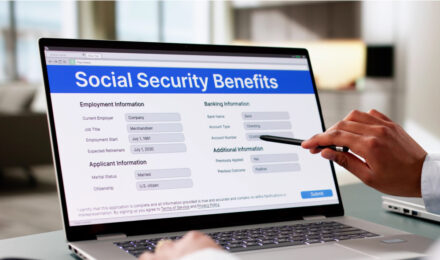Unexpected events like job loss, medical emergencies, or natural disasters can quickly destabilize your finances. Consequently, accessing help early can prevent serious hardships such as eviction or utility shut-offs. Below, we outline the main sources of emergency financial relief, explain how to apply, and offer tips to streamline the process.
Federal and State Assistance Programs
First, consider government programs that provide direct support:
- Unemployment Insurance (UI): Offers weekly benefits when you lose your job through no fault of your own. Benefits and duration vary by state.
- Temporary Assistance for Needy Families (TANF): Supports low-income families with children. Eligibility and benefit levels differ across states.
- Supplemental Nutrition Assistance Program (SNAP): Provides food-purchasing aid via electronic benefits. Eligibility depends on household size and income.
- Low Income Home Energy Assistance Program (LIHEAP): Covers heating and cooling costs and can prevent utility shut-offs.
- Emergency Rental Assistance Programs (ERAP): Helps with rent, utilities, and related housing costs. Funds are distributed locally and may vary by jurisdiction.
Visit Benefits.gov or your state’s social services website for program details, eligibility criteria, and deadlines.
Nonprofit and Community Resources
Moreover, nonprofit organizations and local agencies often deliver faster relief with fewer requirements:
- 211 Helpline: Dial 211 to connect with local agencies offering help with food, rent, utilities, and more. Service is free and confidential.
- Salvation Army: Provides emergency grants for rent, utilities, and medical bills, plus food and clothing.
- United Way: Coordinates support through local partners, addressing needs like childcare and transportation.
- Community Action Agencies: Available in nearly every county, these agencies offer crisis grants, housing support, and weatherization services.
Generally, you need only basic documents such as a photo ID and proof of your crisis (e.g., eviction notice or medical bill).
Hardship Grants and Special Funds
In addition, certain organizations offer targeted grants for specific emergencies:
- Modest Needs Foundation: Offers grants up to $1,000 for expenses like car repairs or medical co-pays. Applicants often complete volunteer work or repay a portion.
- National Relief Programs: Maintain grant listings for crises such as domestic violence or sudden hospitalization. Deadlines and requirements can be strict.
- VA Emergency Grants: Veterans and dependents may receive aid for housing, utilities, and basic needs through the Department of Veterans Affairs.
Be sure to observe application deadlines and supply detailed documentation to improve success rates.
Application Process and Eligibility
First, compile all necessary paperwork: photo ID, proof of address, income documentation, and evidence of your emergency. Then:
- Prioritize Fast-Track Aid: Apply first with nonprofits or 211 referrals for immediate support. Meanwhile, complete government applications.
- Follow Guidelines Closely: Review each program’s thresholds and document checklists. Missing information can delay decisions.
- Track Submissions: Keep a log of dates, contacts, and follow-up needs. This prevents confusion and speeds responses.
Most applications are now online, although some agencies may still require phone or in-person interviews. If you face language or mobility barriers, ask about translation services or mobile outreach teams.
Strategies for Success
Furthermore, use these tactics to maximize assistance:
- Combine Resources: Leverage SNAP, LIHEAP, and a small grant together to cover multiple needs.
- Seek Case Management: Social workers can uncover local funds, help with paperwork, and negotiate with landlords or utility providers.
- Set Renewal Reminders: Some programs require reapplication every few months. Mark calendar alerts to avoid lapses.
- Stay Alert for Scams: Legitimate aid never demands upfront fees. Verify programs through official government or established nonprofit websites.
Finally, if an application is denied, request a clear explanation immediately. Then, explore alternative resources without delay.
Moving Forward
In conclusion, timely access to emergency financial assistance can protect your housing, credit, and well-being. By understanding the range of government initiatives, nonprofit services, and special grants, you can craft a relief plan that fits your situation. With organized documentation and proactive follow-up, you enhance your chances of swift support. In a crisis, knowing where to turn is the first step toward regaining stability and rebuilding your financial health.
References
- U.S. Department of Health & Human Services, “Assistance Programs,” Benefits.gov. https://www.benefits.gov/
- United Way Worldwide, “211: Community Help Network,” United Way. https://www.unitedway.org/our-impact/featured-programs/211
- Modest Needs Foundation, “Self-Sufficiency Grant Program,” ModestNeeds.org. https://www.modestneeds.org/apply/
Unexpected events like job loss, medical emergencies, or natural disasters can quickly destabilize your finances. Consequently, accessing help early can prevent serious hardships such as eviction or utility shut-offs. Below, we outline the main sources of emergency financial relief, explain how to apply, and offer tips to streamline the process.
Federal and State Assistance Programs
First, consider government programs that provide direct support:
- Unemployment Insurance (UI): Offers weekly benefits when you lose your job through no fault of your own. Benefits and duration vary by state.
- Temporary Assistance for Needy Families (TANF): Supports low-income families with children. Eligibility and benefit levels differ across states.
- Supplemental Nutrition Assistance Program (SNAP): Provides food-purchasing aid via electronic benefits. Eligibility depends on household size and income.
- Low Income Home Energy Assistance Program (LIHEAP): Covers heating and cooling costs and can prevent utility shut-offs.
- Emergency Rental Assistance Programs (ERAP): Helps with rent, utilities, and related housing costs. Funds are distributed locally and may vary by jurisdiction.
Visit Benefits.gov or your state’s social services website for program details, eligibility criteria, and deadlines.
Nonprofit and Community Resources
Moreover, nonprofit organizations and local agencies often deliver faster relief with fewer requirements:
- 211 Helpline: Dial 211 to connect with local agencies offering help with food, rent, utilities, and more. Service is free and confidential.
- Salvation Army: Provides emergency grants for rent, utilities, and medical bills, plus food and clothing.
- United Way: Coordinates support through local partners, addressing needs like childcare and transportation.
- Community Action Agencies: Available in nearly every county, these agencies offer crisis grants, housing support, and weatherization services.
Generally, you need only basic documents such as a photo ID and proof of your crisis (e.g., eviction notice or medical bill).
Hardship Grants and Special Funds
In addition, certain organizations offer targeted grants for specific emergencies:
- Modest Needs Foundation: Offers grants up to $1,000 for expenses like car repairs or medical co-pays. Applicants often complete volunteer work or repay a portion.
- National Relief Programs: Maintain grant listings for crises such as domestic violence or sudden hospitalization. Deadlines and requirements can be strict.
- VA Emergency Grants: Veterans and dependents may receive aid for housing, utilities, and basic needs through the Department of Veterans Affairs.
Be sure to observe application deadlines and supply detailed documentation to improve success rates.
Application Process and Eligibility
First, compile all necessary paperwork: photo ID, proof of address, income documentation, and evidence of your emergency. Then:
- Prioritize Fast-Track Aid: Apply first with nonprofits or 211 referrals for immediate support. Meanwhile, complete government applications.
- Follow Guidelines Closely: Review each program’s thresholds and document checklists. Missing information can delay decisions.
- Track Submissions: Keep a log of dates, contacts, and follow-up needs. This prevents confusion and speeds responses.
Most applications are now online, although some agencies may still require phone or in-person interviews. If you face language or mobility barriers, ask about translation services or mobile outreach teams.
Strategies for Success
Furthermore, use these tactics to maximize assistance:
- Combine Resources: Leverage SNAP, LIHEAP, and a small grant together to cover multiple needs.
- Seek Case Management: Social workers can uncover local funds, help with paperwork, and negotiate with landlords or utility providers.
- Set Renewal Reminders: Some programs require reapplication every few months. Mark calendar alerts to avoid lapses.
- Stay Alert for Scams: Legitimate aid never demands upfront fees. Verify programs through official government or established nonprofit websites.
Finally, if an application is denied, request a clear explanation immediately. Then, explore alternative resources without delay.
Moving Forward
In conclusion, timely access to emergency financial assistance can protect your housing, credit, and well-being. By understanding the range of government initiatives, nonprofit services, and special grants, you can craft a relief plan that fits your situation. With organized documentation and proactive follow-up, you enhance your chances of swift support. In a crisis, knowing where to turn is the first step toward regaining stability and rebuilding your financial health.
References
- U.S. Department of Health & Human Services, “Assistance Programs,” Benefits.gov. https://www.benefits.gov/
- United Way Worldwide, “211: Community Help Network,” United Way. https://www.unitedway.org/our-impact/featured-programs/211
- Modest Needs Foundation, “Self-Sufficiency Grant Program,” ModestNeeds.org. https://www.modestneeds.org/apply/







